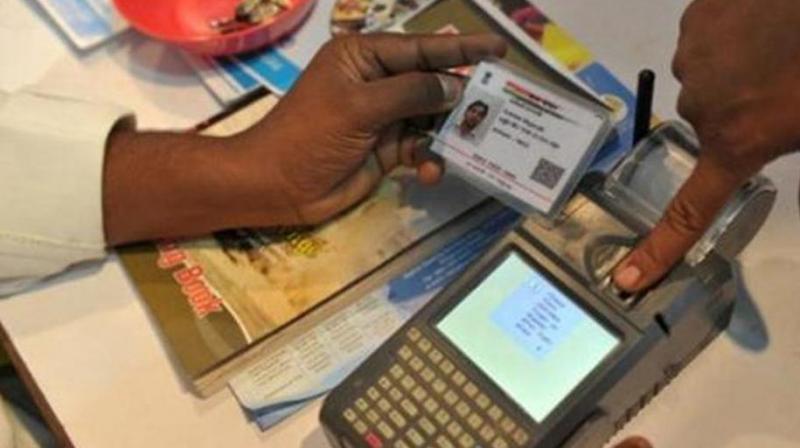Centre seeks PowerPoint presentation on Aadhaar in SC for 'clarity'
The court has extended the March 31 deadline for linking of Aadhaar to avail various services and welfare schemes.

New Delhi: The Centre on Wednesday sought the Supreme Court's permission to allow the CEO of the Unique Identification Authority of India (UIDAI) for a PowerPoint presentation on Aadhaar scheme in the court to allay concerns.
Chief Justice Dipak Misra, hearing a number of pleas challenging the constitutional validity of Aadhaar and its enabling Act, said he will fix the time for the presentation after discussing the matter with other judges of the five-judge constitution bench he is heading.
The bench said there are several technical aspects related to the Aadhaar scheme such as the surveillance, data security and exclusion of certain people from receiving benefits for the want of either authentication or the lack of Aadhaar number.
Attorney General KK Venugopal, who argued for the Centre, said the UIDAI chief executive may deal with technical aspects with more clarity. He said the Fundamental Rights enshrined in the Indian Constitution have two aspects.
One deals with rights like Right to Food and Right to Education and the other pertains to Freedom of Conscience and Right to Privacy, Venugopal said. The question is which aspect will prevail, he said, adding that the fundamental rights like the Right to Life should prevail over Right to Conscience and Privacy.
He is continuing with his submission.
The Supreme Court on Tuesday took note of the submission that a person cannot be asked to part with personal information under the Aadhaar scheme on the ground of freedom of right to religion, and asked can a person refuse to follow the law in secular matters such as filing of income-tax returns.
The constitution bench was told that a boy was denied admission in a school after his father refused to give biometric details for Aadhaar on grounds that their religion does not permit it.
"In secular matters, can you say that I will not opt for it. For example, can a person refuse to opt for the Income-Tax saying that his conscience does not allow it," the bench said.
Earlier, the apex court was told that the collection of biometric details of citizens by the UIDAI from 2010 onwards till 2016, when the enabling Aadhaar law came into force, was "illegal" and "invalid" and the collected data deserved to be destroyed.
The court has extended the March 31 deadline for linking of Aadhaar to avail various services and welfare schemes run by the government until it delivers its verdict on the validity of the 12-digit biometric number and its enabling law.

